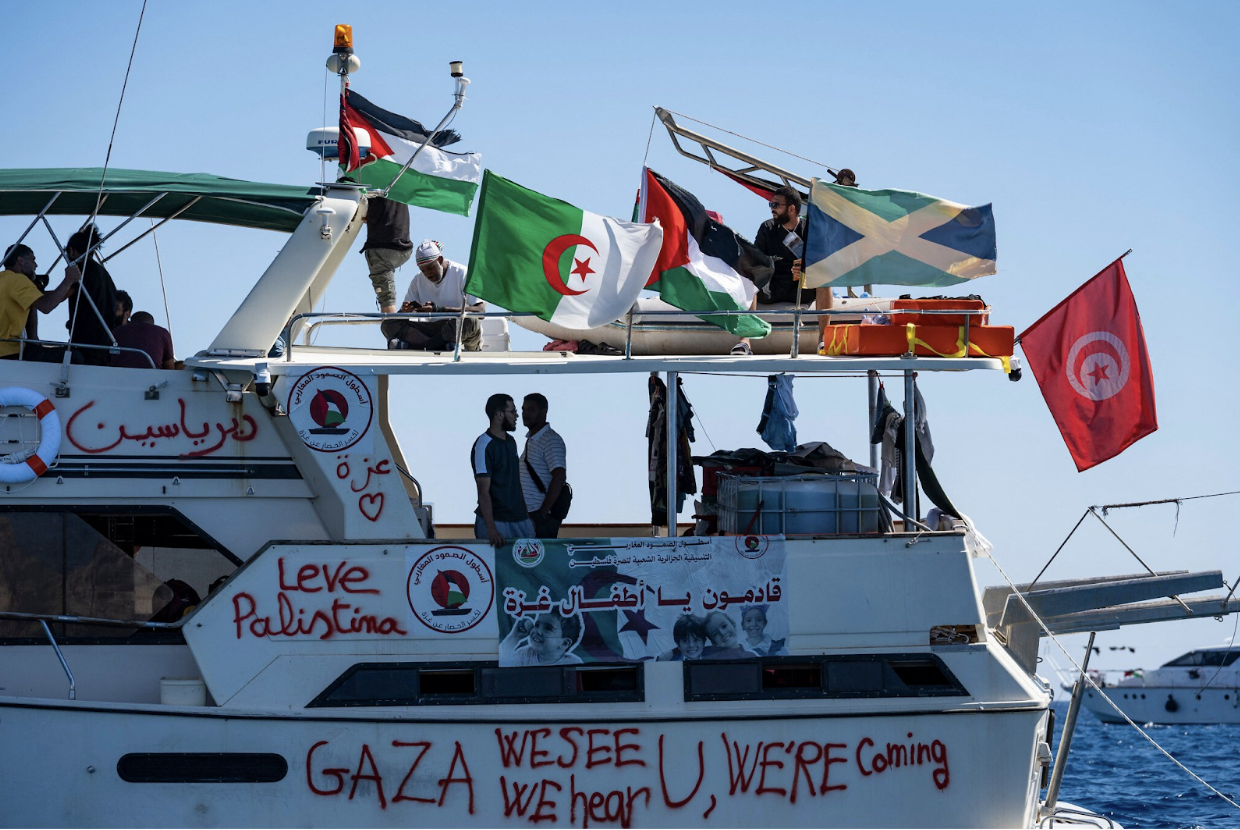Photo via The Times of Israel
***
Since the attack on Israel by Hamas occurred on October 7th, the conditions in the Gaza Strip have only worsened. The current blockade on Gaza, which was implemented in 2007 after Hamas took control of the territory, has intensified. Initially, the blockade enforced limits on the entry and exit of people and goods regardless of transportation (land, sea, and air). It was implemented with the goal of condemning a Hamas-led government and applying pressure on the new government in hopes of softening its policy towards Israel. The blockade resulted in imports like medicine and water being limited, as well as physically restricting the movement of Palestinians themselves. The Israeli government’s response to the attacks has resulted in intensifying the blockade on the Strip, as a “complete siege” began to be imposed. No water, electricity, food, or fuel could enter the territory.
This escalation has only worsened the humanitarian crisis in Gaza, as aid has not been able to reach the Strip in sufficient amounts without disruption from the blockade. As the crisis continues, the Global Sumud Flotilla, a small ship carrying aid, set sail in late August with the aim of breaching the blockade to successfully deliver aid to the Strip. On the surface, this looks like an act of compassion—but it also signifies a broader political struggle. This flotilla is not solely about delivering food and aid to people in dire need; it is about power and resistance led by ordinary people on an international level. While the Israeli and United States governments prolong debates, and international institutions stall, NGOs and civilian activists (like those on the flotilla) are taking bold, direct action overseas, putting their own lives on the line for a larger cause. This begs the larger question: what does this flotilla further symbolize about the boundaries of NGOs and state powers?
Before delving deeper into the question at hand, it’s important to look at how the current humanitarian crisis in Gaza has developed and how past attempts to get aid into the region have gone. As mentioned before, the blockade on Gaza has intensified since the attacks, and this has had catastrophic consequences for the lives of everyday people. The total blockade has restricted access to vital resources for Gazans, including food. The entire population of 2.1 million people in Gaza has been subjected to food shortages, with half a million experiencing a catastrophic situation of hunger, acute malnutrition, starvation, illness, and death (before declaration of famine). According to Gaza’s Ministry of Health (cited by the UN), at least 61,158 Palestinians have been killed, with over 150,000 injured. As the blockade continues, the Palestinian people have no means of getting access to food and aid. The World Health Organization has confirmed that Gaza has entered a state of famine, and conditions will only worsen if aid cannot be received.
This current flotilla is also not the only attempt to reach aid to the region. In 2010, the Turkish ship Mavi Marmara attempted to deliver aid to Gaza but was intercepted by the Israeli military in international waters. The interception led to the killing of ten activists, sparking outrage from those critical of Israel.
The current flotilla represents an important dynamic of non-state actors stepping in internationally where governments have been stalling. The Freedom Flotilla itself is organized by a coalition of grassroots activists who work together in different parts of the world to end the blockade on Gaza. The coalition is backed by NGOs like Human Rights Watch and Greenpeace International, expanding the intersection of activists who contribute to the cause. This is a stark example of challenging the traditional notion that only states can act on global change. The organization also depolarizes the situation in Gaza. While the Israeli government enforces the blockade on the basis of national security, the flotilla helps to highlight that what is occurring is a humanitarian issue more than anything, and that regardless of state identity, human rights and international law should still be applicable. This situation more broadly raises the question: when governments fail to address humanitarian suffering, is it permissible for civilians to intervene?
Even with the interception of the flotilla, the people behind the cause still contribute to changing the narrative and drawing attention to the crisis, forcing governments to react. The flotilla serves as a statement and brings attention to the suffering in Gaza, pressuring institutions to respond and look at global opinion. Along with global opinion, the international response from institutions has revealed the deep political divides regarding views on the blockade. Humanitarian organizations like Amnesty International and Greenpeace have condemned the interception of the ship by the Israeli army. In contrast to this, Western governments like the United States have made superficial attempts to aid the situation in Gaza. For example, the US government has authorized a 30 million dollar grant to the Gaza Humanitarian Foundation, which, on the surface, seems productive, but, in fact, the GHF has been accused by critics of “politicising” the distribution of humanitarian aid in Gaza. There have also been instances of violence at aid distribution locations, leading to the deaths of Palestinians. These actions seem to be less rooted in the causes of bringing secure aid to Palestinians, and are one of the main reasons why, around the world and within the US, protests have broken out condemning the Israeli government.
The flotilla is more than a means of delivering aid; it represents the larger struggle over how non-governmental organizations have an effect on world politics. Even with the ship being stopped, the symbolism prevails: it captures global attention, pressures states to act, and sustains the grassroots movement of the Palestinian cause. In a world where governmental action is seemingly less effective, the flotilla reminds us that ordinary people can still have an impact on discourse happening internationally.
***
This article was edited by Sidney Blasco and Sophie Reilly.
